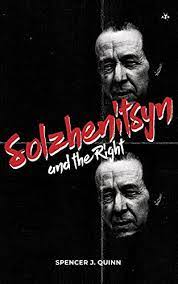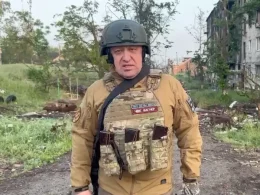Thoughts on the Wagner Mutiny
First and foremost, I’d like to laugh at the Russia apologists who think they won something. Admittedly, a very bad situation for the Russian Federation was prevented from getting catastrophically worse. But overall, this has harmed Russia greatly and did not harm Ukraine at all.
Now let’s go over some decades-old background to these events that I don’t see covered nearly enough.
How did Yevgeny Prigozhin (hereafter Prigo) rise to power? In the early-to-mid-1990s Vladimir Putin was a humble and corrupt government official in St. Petersburg. He held several posts, including several simultaneously, including “Head of the Committee for External Relations of the Mayor’s Office,” whose responsibilities included promoting international relations and most importantly, foreign investments. What this means is that Putin was one of the single-digit number of most important men for Western and internal oligarchs to bribe in order to loot Russia in the post-Soviet era of collapse. You can do more research on Putin’s role in government in this era, but suffice to say tales and investigations of corruption abound.
Where does Prigo fit into this? At the same time Prigo was running his “catering” business, which was one of the many ways of laundering money at the time, he was also CEO of Spectrum CJSC, a company that owned several casinos and gambling-related businesses. From 1991 to 1996, Putin was serving as “Chairman of the Supervisory Board for Casinos and Gambling,” among his other posts. It is incredibly likely that Putin and Prigo’s friendship began via mutual corruption, with Prigo bribing Putin to look the other way as the former convicted felon shadily ran his gambling enterprises, and in return Putin using Prigo’s rapidly-growing business empire to launder the money he was making selling Russian assets to various Jewish and non-Jewish oligarchs from outside and inside Russia. Now, you don’t have to be a criminal mastermind to realize that if you are conducting illegal operations on behalf of a politician with great ambition, perhaps it would be wise to “keep some receipts.”
It obviously can’t be proven, but it’s possible that Prigo has blackmail on Putin from their shared corrupt practices in the 1990s, and that this is how Putin came to both trust and rely on Prigo, and why Prigo was able to wrangle so many favors from the Kremlin over the decades and rise to the position he found himself in in June 2023. It’s clear from the events of the past few days that they don’t have a deep friendship, true comradely loyalty, or a shared worldview that makes them ideological brothers struggling on behalf of a shared dream. It seems they have simply been longtime business partners who used each other for mutual advantage. Putin eventually leveraged Prigo’s business empire and criminal mentality to create a Private Military Company which acted as a hand of the Russian government in foreign policy, which benefitted Putin’s government and Prigo’s bank account. It’s been one hand washing the other for decades.
The Wagner mutiny itself was a disaster for Russia. It did not lead to a catastrophic collapse of the Russian Federation, but it nevertheless has significant consequences. To very briefly summarize the events:
After over a year of high tensions between Prigo and the Russian Ministry of Defense (MoD), Prigo claimed the Russian MoD bombed a Wagner base, resulting in dozens of casualties (but only showing a few small fires and maybe one body in a video). He said Wagner will make the next move. Wagner then captured the city of Rostov, home to 1.1 million people and the headquarters of the Russian invasion of Ukraine, surrounding it with tanks and soldiers. He then said they would march on Moscow and hang the Minister of Defense Shoigu and Chief of the General Staff Gerasimov, as well as that “Russia will have a new President soon.” Russian border troops and various military formations did not oppose the Wagner march, and stepped aside to let them pass or actively joined. Several Russian military blogger Telegram channels, with followers ranging from a few hundred thousand to over one million, voiced their support for Prigo and Wagner. Putin released an extremely passionate (angry) video calling — without naming Prigo himself, although he did name Wagner Group — the insurrectionists traitors to Russia who would be dealt with in the severest way. He also ordered Russian military and security forces to not “make a fatal and tragic mistake” by joining the mutiny and compared the situation to 1917, saying that this could have catastrophic consequences for Russia, including capitulation and humiliation. “Stab in the back,” “treason,” and “betrayal of the country” were several phrases Putin used often.
From Wagner’s march from eastern Ukraine to Rostov, and then towards Moscow, they shot down seven Russian military aircraft, according to several Russian military Telegram channels, including two very expensive electronic warfare (EW) helicopters, and killed 12 Russian pilots. Even more valuable than the EW helicopters are the lives of trained and experiences pilots. It takes a long time and lots of resources to train even one military pilot to become adequate at their job. In one day Russia lost 12 of them, making it the deadliest day for the Russian Air Force throughout the entire war. Rest assured that the costs to the Russian state don’t end there, as I guarantee the families of each pilot will get a large check from the state to not make a public deal about their family members being murdered by Russian soldiers gone rogue who are seemingly being let off without punishment.
The Russian military and security services internally did absolutely nothing to stop Wagner, except by partially bombing one section of one Wagner convoy from the air before the attacking aircraft was either shot down or forced to evade Wagner’s air defense. Specifics of casualties throughout the entire crisis are still very unknown. For eight hours Wagner marched unopposed for hundreds of kilometers towards Moscow. Finally, with the military and security services preparing defenses in Moscow, and Wagner either 80 or 220 kilometers from the city depending on who you ask, Alexander Lukashenko, the President of Belarus — Belarus being Russia’s alleged satellite state — negotiated a deal whose specifics are unknown to end the mutiny.

You can buy Spencer J. Quinn’s Solzhenitsyn and the Right here.
It was an unbelievably embarrassing and destabilizing episode for the Russian Federation.
Most Westerners would hand-wave this away, because in the Western world our politicians are open whores and their reputations mean nothing. But this is a Western perspective, not a Russian or an authoritarian one. All authoritarian regimes, especially the Russian Federation, are built on the premise of strength. There’s a reason Putin releases propaganda videos of himself doing judo training, shooting guns, riding horseback bare-chested, and visiting and commanding the military. In authoritarian regimes the people’s perception of your power, of your infallibility, is at least as important as your actual power and infallibility.
Let’s use Nicolae Ceaușescu as an example. Near the end of his dictatorship, he had lost actual, real, tangible power. But it wasn’t until he appeared on his balcony and raised his hand and told/asked the crowd to be silent, and the crowd refused, that the people collectively realized he had lost his power. You can actually see the moment on his face when he realized he had lost control. Ceaușescu then fled as Bucharest openly revolted, and the revolt was crushed, although the revolution spread across Romania rapidly. Four days later he and his wife were executed, which was shown later the same day on Romanian television. What’s important to note is that the revolution did not begin until everybody collectively realized that the dictator no longer had power or a people’s mandate. It wasn’t until he was unable to silence the crowd in Bucharest that Romania’s discontent and scattered protests turned into a nation-wide revolution. To sum up, a perception of weakness of the state and dictator is death to authoritarian regimes.
This is precisely what happened in Russia on June 23–24. A private citizen was able to embarrass the state military and security apparatus, and the President was forced to make a national broadcast which he is no doubt kicking himself over and which is keeping him up at night where he had to compare the situation Russia is in today to 1917, when the government was violently overthrown and the ruling class exterminated or exiled in a years-long civil war. He also had to admit that the situation in Rostov is “difficult” and that “the civil and military administration is effectively blocked from doing their job.”
In other words, we have gone from years of “Russia is mighty” propaganda, and then almost a year and a half of “Russia is winning the full-scale invasion of Ukraine; Ukraine does not stand a chance,” to the President of Russia issuing a speech discussing the potentiality of defeat, capitulation, embarrassment, loss of territory, civil war, and other disastrous prospects and words being associated with Russia. And in the end, it’s the dictator of your alleged client state that is seen as saving the day, where the Russian President, Russian military, and Russian security services failed. It was utterly embarrassing and delegitimizing.
As part of the unknown deal, Prigo is allegedly on his way to exile in Belarus. If he is not eventually executed/assassinated, then that basically verifies that he does indeed have blackmail on Putin which he promised will be released upon his death. Now of all times, the President of Russia being exposed for selling Russian assets to Western oligarchs after the collapse of the 1990s would be almost as embarrassing and delegitimizing as the Wagner mutiny. Even if he is executed or assassinated, it’s possible Prigo still had this blackmail and used it for years, but Putin was able to find a way to prevent it from being released while also killing Prigo.
In summation, on June 23-24 the Russian Federation lost several aircraft, a dozen or so experienced pilots, and unknown other casualties. But most importantly, its authoritarian regime suffered an immense blow to its most important requirement: the perception of its power.
Adapted from James A’s Rants and Presentations on Telegram
* * *
Counter-Currents has extended special privileges to those who donate $120 or more per year.
- First, donor comments will appear immediately instead of waiting in a moderation queue. (People who abuse this privilege will lose it.)
- Second, donors will have immediate access to all Counter-Currents posts. Non-donors will find that one post a day, five posts a week will be behind a “Paywall” and will be available to the general public after 30 days.
- Third, Paywall members have the ability to edit their comments.
- Fourth, Paywall members can “commission” a yearly article from Counter-Currents. Just send a question that you’d like to have discussed to [email protected]. (Obviously, the topics must be suitable to Counter-Currents and its broader project, as well as the interests and expertise of our writers.)
To get full access to all content behind the paywall, sign up here:
Paywall Gift Subscriptions
 If you are already behind the paywall and want to share the benefits, Counter-Currents also offers paywall gift subscriptions. We need just five things from you:
If you are already behind the paywall and want to share the benefits, Counter-Currents also offers paywall gift subscriptions. We need just five things from you:
- your payment
- the recipient’s name
- the recipient’s email address
- your name
- your email address
To register, just fill out this form and we will walk you through the payment and registration process. There are a number of different payment options.




